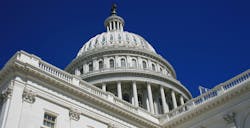The clinical lab community has long supported efforts to address and support efficient utilization in the delivery of healthcare services, particularly within the diagnostic testing sector. Government and providers should continue to collaborate on the best possible strategies to continue the movement toward value-based care.
While several policy proposals have been introduced with the aim of maximizing appropriate utilization, decision makers must be thoughtful and diligent in determining which measures will actually achieve the intended goal. It is important to understand that when it comes to clinical laboratory testing, there is both overutilization and underutilization—and there are complex reasons for both.
That is why it is concerning that the Office of Inspector General (OIG) includes in its Appendix to the April 2016 edition of the Compendium of Unimplemented Recommendations a few measures that the American Clinical Laboratory Association (ACLA) and others in the clinical lab community believe completely miss the mark with respect to appropriate utilization.
First, the OIG recommends applying beneficiary coinsurance to laboratory services provided under the Medicare Clinical Laboratory Fee Schedule (CLFS).
As ACLA noted in a May 2016 letter to Daniel Levinson, Inspector General U.S. Department of Health and Human Services, “Collecting coinsurance is uniquely difficult for labs because, unlike all other healthcare providers, labs typically do not have face-to-face encounters with patients. Most of the time, a Medicare beneficiary’s specimen is obtained somewhere else, such as a physician’s office, and sent to the lab, which then performs the prescribed testing. As such, labs must rely on billing and collections to obtain the cost-sharing amount from beneficiaries. If those good faith efforts do not succeed, laboratories must absorb those losses along with the added costs of collecting the cost-sharing. To truly impact utilization, one needs to address prescriber behavior, since all CLFS services must be ordered by a licensed clinician.”
ACLA went on to point out that “the application of Medicare cost-sharing would result in an estimated 143 million new Medicare claims each year, of which 50 percent will be for $5 or less, with approximately 73 percent for $10 or less. About 14 million of the new claims would be for $1 or less. Indeed, for almost 40 percent of the new claims, the $3.50 cost of collecting and processing the coinsurance would exceed the coinsurance liability.”
Additionally, the letter states that the clinical lab community is “concerned that cost-sharing will disproportionately affect access to vital diagnostic lab services for Medicare’s most vulnerable beneficiaries, namely those receiving skilled nursing or home health services.”
ACLA has advocated other more effective ways to address inappropriate utilization. In recent years, there has been a trend for some specialty physicians to bring certain pathology services in house, which allows them to bill for those services and be paid by Medicare. Because this directly increases the physicians’ revenue, some find that an incentive to order more tests. The Government Accountability Office (GAO) reported that “an estimated 918,000 more referrals” for these complex services were made by self-referring physicians in 2010, when compared to those who did not self-refer. And as a result of the increased self-referral, the bill to taxpayers was $69 million higher in 2010 alone.
These services are only permitted because of an exception to the self-referral law, which protects In Office Ancillary Services (IOAS). That exception was originally designed for a much narrower situation, for services such as simple lab tests or x-rays that were performed for the convenience of the patient while he or she was still in the office. It was not designed to protect more complex anatomic pathology services that were performed after the patient had left the office. Addressing this exception to anti-self-referral laws would be a straightforward fix that would work not only to save the Medicare program dollars but also to reduce inappropriate utilization.
Getting back to the OIG’s recommendations, along with the coinsurance recommendation, the OIG suggested periodically evaluating the national fee schedule to ensure that reimbursement is “aligned with the prices physicians pay for clinical laboratory tests.”
This recommendation was confusing, because in both commercial and government reimbursement, physicians don’t “pay for clinical laboratory tests.” While physicians order laboratory tests, private and public payers (not physicians) reimburse laboratories directly for those tests.
Nevertheless, it appears that the OIG was suggesting that the Medicare CLFS should be evaluated to ensure that its reimbursement rates are aligned with commercial or market rates. But two years before the OIG issued its report with this recommendation, legislation was enacted providing for an entirely new market-based system for reimbursing laboratories under the CLFS. Section 216 of the Protecting Access to Medicare Act (PAMA) directed the Centers for Medicare and Medicaid Services (CMS) to establish new prices for every clinical laboratory test on the CLFS, based on the weighted median of private payer rates. These new rates will take effect in January 2018 under final rulemaking recently promulgated by CMS. These prices will be recalculated either annually or every three years, depending on the type of laboratory test.
At the heart of the clinical lab community is a shared mission to provide physicians and patients with accurate diagnostic information that will enhance treatment decisions and health outcomes. Patients deserve pragmatic public policy that recognizes the value of diagnostic testing, spurs innovation, and allows for even greater scientific discoveries that will continue to positively transform and preserve the integrity of the practice of medicine.
Alan Mertz is President of the American Clinical Laboratory Association (ACLA), based in Washington, D.C.

